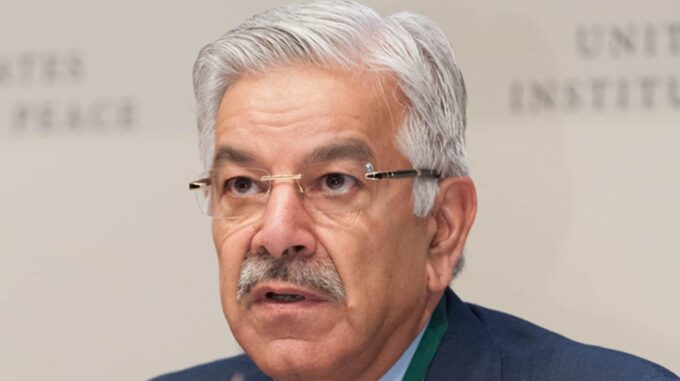Escalation at the Border: Pakistan Warns of the Inevitable Possibility of a Military Invasion by India Following Recent Incident in Kashmir

In the context of heightened tensions between the two nuclear-armed countries, Pakistan issued a sensational warning regarding the potential for a large-scale military invasion by India. Pakistan’s Minister of Defense, Khawaja Muhammad Asif, explicitly stated in his remark that, in response to the recent attack on tourists in the Kashmir region, it is unlikely that India will avoid military action. This statement has become yet another sign of increasing military conflict that threatens the stability of the entire region. Against the backdrop of recent events, the situation in the region is becoming particularly tense. After at least 26 people were killed in a terrorist attack in Pahalgam, Indian Kashmir, widespread discussions have erupted across India, accompanied by calls for decisive action against Pakistan. The majority of the country’s population—Hindus—support strict measures, while Islamabad categorically denies any involvement in supporting militants and demands an independent investigation into the tragedy. According to Khawaja Muhammad Asif, the situation is exacerbated by India’s increasing inflammatory rhetoric and the Pakistani military’s reports to the government about possible preparations for attacks. While details and possible conflict scenarios remain classified, initial statements suggest that India is already developing a potential operation to invade the disputed region. It is evident that any actions taken by either side could lead to a full-scale military confrontation, especially considering the nuclear capabilities of both nations. Currently, official representatives of India’s Ministry of Defense and Ministry of External Affairs are refraining from commenting on Pakistan’s statements. Meanwhile, New Delhi emphasized that the attack on Indian citizens was carried out by Pakistani nationals and pledged to find and punish those responsible. Islamabad’s response to these accusations remains unresolved, with the government calling for an objective investigation into the incident. Indian Prime Minister Narendra Modi has promised that those responsible will be identified and held accountable. Analysts, however, warn of serious regional consequences: increasing tensions could escalate into an open military conflict, jeopardizing peaceful coexistence between the two nuclear powers. Additionally, the Indian government has suspended the important intergovernmental Water Treaty concerning the sharing and distribution of water resources, marking another sign of destabilization. In response, Pakistan closed its airspace for Indian aircraft, and Khawaja Muhammad Asif reiterated that the use of nuclear weapons would only be possible in case of a direct threat to national security. The country has also reached out to regional allies—including Gulf countries, China, the USA, and Great Britain—for support and mediation efforts to avoid full-scale war. Sources inform that, following India’s actions, Pakistan has addressed international organizations, including the World Bank, demanding protection of its infrastructure and interests, including through the shutdown of air links and restrictions in aviation. Simultaneously, international calls for restraint and de-escalation have intensified. Another growing factor of tension is India’s withdrawal from the Water Sharing Agreement, which has strategic significance for both countries and directly affects the lives of millions in the region. While India accuses Pakistan of supporting radical groups allegedly behind the 2008 Mumbai attacks, Islamabad protests and denies any connection to such actions. Recall that on April 23, in Pahalgam, Kashmir, militants launched a large-scale attack on tourists, resulting in 26 deaths and eliciting widespread international outrage. This incident ranks among the most severe and large-scale attacks in the region in recent years and raises increasing concerns about a new escalation of violence. All these events heighten the risk to regional stability and cast doubt on the prospects for peaceful resolution of the conflict between China, India, and Pakistan. Global leaders have already urged urgent de-escalation and diplomatic solutions; however, voices are emerging about the possible transition of the conflict into a larger and more prolonged phase, which could have devastating implications for international security. If the situation does not stabilize, the region could face a new military crisis that might draw other countries into the conflict. Experts warn that if the current course persists, further escalation and deterioration of the conflict could occur within the coming months, requiring immediate international intervention and the search for compromise solutions to prevent a full-scale war.

